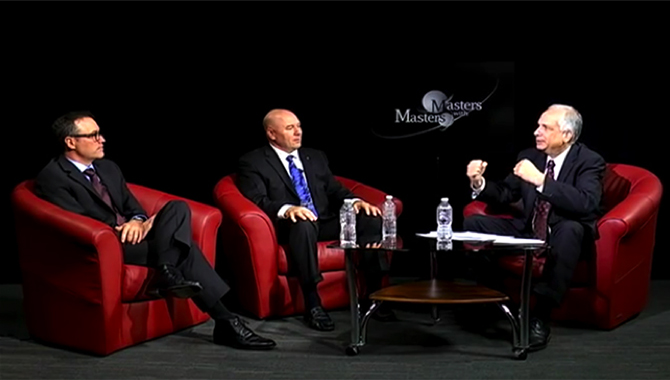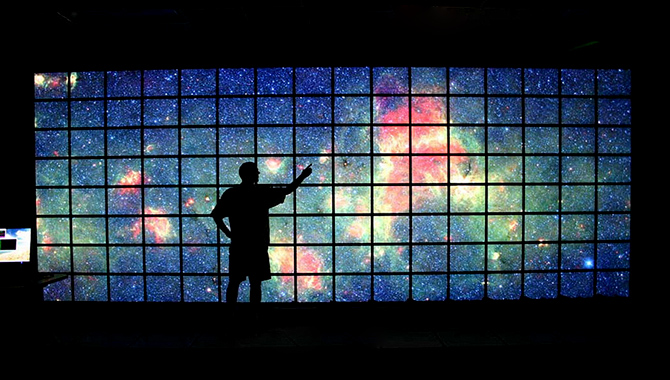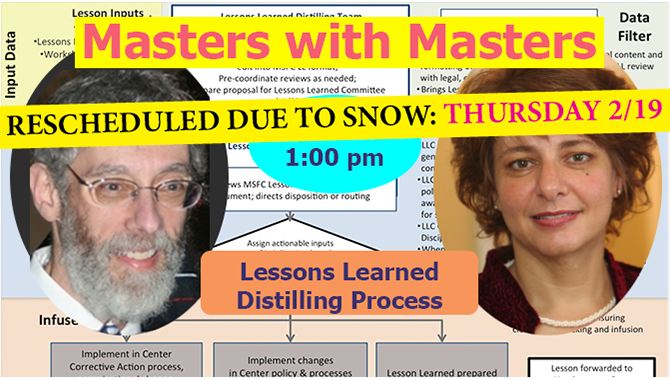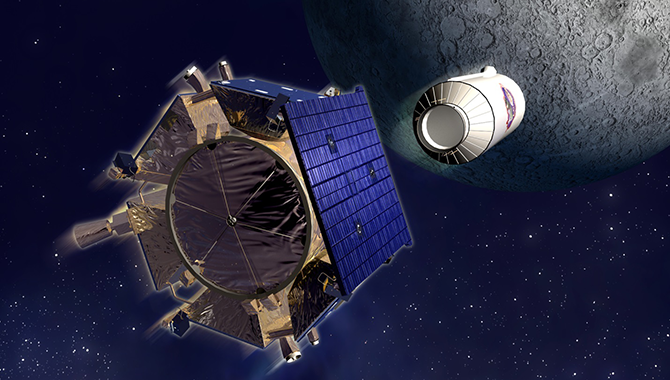
Two practitioners share their insights and experience with Big Data at NASA.
For a special Masters with Masters (MwM), “What’s the Big Deal with Big Data,” Ed Hoffman, NASA Chief Knowledge Officer, sat down with John Sprague, Deputy, Technology & Innovation Division and End User Architect at NASA, and Brian Thomas, a newly-hired Data Scientist at NASA with 20 years of experience including work at Goddard Space Flight Center. Between the two men, they share more than four decades of experience supporting and leading scientific research and programming, data analysis, and user experience projects. Despite their deep-rooted history, the exchange of ideas during the discussion seemed fresh and unburdened. The 500 viewers who attended the live streaming interview should not have been surprised to hear that this event was the first in a series of MwMs to focus on Big Data; from the energy buzzing around the topic, a viewer can easily understand why more interviews are being planned for investigating Big Data issues.
Early in the interview, Sprague stated that NASA has been engaged in Big Data for decades, but he quickly revealed with a smile that “we didn’t have that term” during its nascent period. Thomas concurred that at the start of his career, no one used the term. Both men nodded when as they recounted that the term “Big Data” was coined by two NASA employees at Ames Research Center in Mountain View, California.
Similarly, the agency has also been actively engaged in knowledge transfer long before it was called Knowledge Services. By using approaches such as case studies and lessons learned now found within NASA’s Knowledge Map and using terms like those found in the Knowledge Toolbox, NASA has “practiced before propagating”.
All of NASA now faces continuous challenges in making effective use of Big Data, and those challenges are of great interest to those engaged with knowledge services. These include enabling the flow of Big Data across organizational boundaries, developing and supporting expertise in big data analysis, providing means for individuals and teams to explore, explain and exhibit analysis results, and infusing lessons learned about and from Big Data into processes.
To engage these challenges better, Sprague provided a quick break-down of the “3 V’s “ of Big Data: Velocity, Volume, and Variety. “You can have data without knowledge,” Thomas offered, “but you can’t have knowledge without data.” His point: you cannot take any action if you are unable to analyze the deluge of data you find yourself wading in. He also spoke specifically of the dangers of being misled by trying to bring together data from different missions with different standards, without understanding the whole process of taking observations across the entire spectrum. “It doesn’t take much to mislead very smart people,” Thomas said, “with minimal amounts of data.” Herein lies the importance of Big Data.
By illustrating the complexity of what can and needs to be done with Big Data at NASA, this first Masters with Masters was auspicious in that it showcased the points of view of both Sprague and Thomas. Thomas observed: “John is coming at this from a sort of ‘user’ standpoint, but my primary interest is in the science and engineering data.” While the perspectives of both men were derived from different standpoints (that broadened the diversity of thought of the MwM event), both agreed on the importance of taking action with Big Data collectively and continuously.
Further, Thomas shared one of the biggest issues facing NASA and all organizations that deal with Big Data. “It is not a problem of Big Data itself, but when you think about the fact that these (types of) data are scattered all over NASA, maybe even outside of NASA, that the expertise itself (is) no longer really—in a situation where experts are clustered together—in one spot.” Thomas and Sprague shared together that the NASA Information Architecture Management working group is functioning together, often during “Big Data Big Think” meetings, to address the issue. “We have a website, naim.nasa.gov (NASA Only) where we’re essentially trying to gather resources and researchers.” Count on Masters with Masters to be there on this journey as Hoffman plans for future discussions to capture and transfer knowledge about Big Data.
To watch this first MwM on Big Data, click on the image above or please click here.
To watch previous Masters with Masters, please visit the NASA APPEL YouTube Channel.









